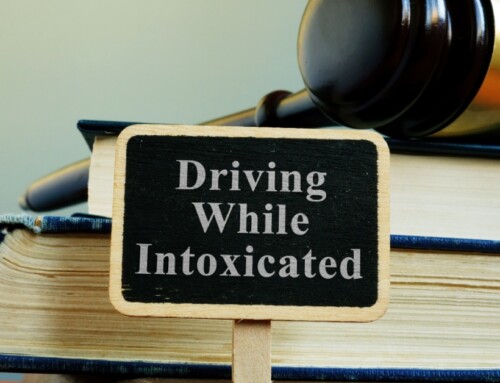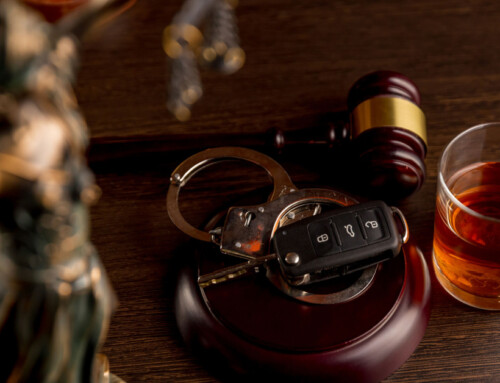A Driving Under the Influence (DUI) charge can have long-term effects on your future, whether you recently received it or were charged years ago. When you’re looking for a new job or acquiring a license for a particular business, you will most likely be asked to provide a criminal record, and this charge may harm your chances of getting what you’re looking for.
In South Carolina, a DUI offense has severe consequences, and organizations such as DUI lawyer Deaton Law Firm, LLC can tell you the penalties you’ll face and what you may lose in the process. Once the case is taken care of, you’ll have to move on with providing a record of the situation to people who may want to do some sort of business with you. Here is a step-by-step guide on how to get a copy of your criminal record in South Carolina, whether you’re a long-time resident or just moved to the state.
DUIs and Consequences
Before we get into how to provide a record of your criminal history, we first need to know what a DUI charge is and how it can affect your chances of success if all involved in the incident are able to get out physically, mentally and emotionally unscathed.
This drunken driving refers to operating a vehicle on public property while having a blood alcohol content (BAC) above the state limit, which is 0.08 in South Carolina. You can still be charged with a DUI if you’re drunk in your vehicle while you’re off the road with the motor off.
Those who are under 21 years old cannot drive with a BAC of 0.02 or higher under South Carolina law, and those driving with a commercial driver’s license deal with a legal limit of 0.04 or higher.
Knowing the consequences that you’ll face in the Palmetto State for a DUI might inspire you to avoid one. This charge could be in your criminal record for up to 10 years after the incident. If you’re applying for a job or to renting a house or apartment in this time frame, the chances of your application being approved will be slim.
A DUI conviction is considered a misdemeanor in the state that can result in up to six months in jail. You also could face fines that could range between hundreds and thousands of dollars, your insurance premiums will take a hit, and you’ll have to pay to have your vehicle towed.
You could also lose your license, whether it’s suspended or revoked, as well as whatever job you have at the time, depending on whether they have zero-tolerance policies for drug-related charges and other convictions.
Facing the Charges
It’s best to handle your DUI conviction with the help of a lawyer with a great deal of knowledge of charges rather than face them on your own. Working with those from Deaton Law can affect how the conviction looks in your criminal record, thus better aiding your future.
They will let you know how much time you’ll face or fines you’ll have to pay, which will depend on how many offenses you’ve committed, as well as what you’ll have to do once the suspension on your license is up to get it back.
Having the right lawyer can affect whether you’re even convicted of a DUI, as he or she can review the case and find out if police and other law enforcement personnel made any mistakes, such as not reading you your Miranda rights or having no probable cause to stop you. If any error is discovered, your record will have a better chance of looking clean.
Criminal Records and Reasons for Providing Them
After the case ends and time goes by, you may be asked to provide a record of your criminal history when trying to reach goals. You may be asked to provide details when that you’re applying for a job or trying to get a master’s degree. You also must reveal your record when you’re trying to get a license for certain profession, start a business, or serve in the military.
You might need to divulge your record to buy certain types of guns, foster or adopt a child, or gain citizenship in another country. It may also be required for security clearance and registering to vote. The Department of Motor Vehicles will also have access to this information when you apply for a license in a different state.
Your personal record will not only show your past convictions but also current offender information and the case, booking numbers, prison terms and other portions of the criminal identification information. This data is available to the public.
Your credit and employment history will also be included, as will court records and police records, causing some people to assume your guilt. Any aliases that you used in the past will also appear, as will tattoos, identifying marks and other notes of your appearance, which can affect the impression a potential employer may have of you even if you didn’t commit a crime.
If you’re moving to South Carolina and were charged with a DUI or other offense in the state you previously lived in, people will still be able to see your record because of law enforcement agencies share this type of information online. Even if your record is being checked in the state where the crime took place, authorities will still be able to trace it and provide it to employers, landlords or other professionals that you may be doing business with.
Handing in a Copy of Your Record
While the chances that you’ll have to order your own criminal record for any of the scenarios mentioned above are slim, having a copy and providing it yourself will save the other party time and money on doing it themselves. It will also show your honesty about the situation and give you a chance to explain what happened.
Before doing so, however, you should make sure that your record has no inaccurate information that could lower your chances of your applications being accepted. Errors could be your record including the criminal offense committed by someone with the same name as you, or a misdemeanor being listed as a felony. In this case, ask the state to correct them as soon as possible, and your attorney can help you get through the process much quicker by spotting mistakes themselves.
To get a copy of your record in South Carolina, you’ll need to send $25 via money order or business check to the Records Check Department in Columbia. You will then have to complete a Criminal Records Check form that will be sent to the Office of the criminal defense lawyer General to complete the background check.
If you want to avoid as many complications as possible, then you can go through a finger-based check, which causes fewer false positives and negatives. This option also provides more information that could affect any applications that you’re trying to complete.
Keep these tips in mind and contact DUI and criminal defense attorney Deaton Law so that you submit a criminal record in a way that guarantees very few issues getting that new job or apartment.






